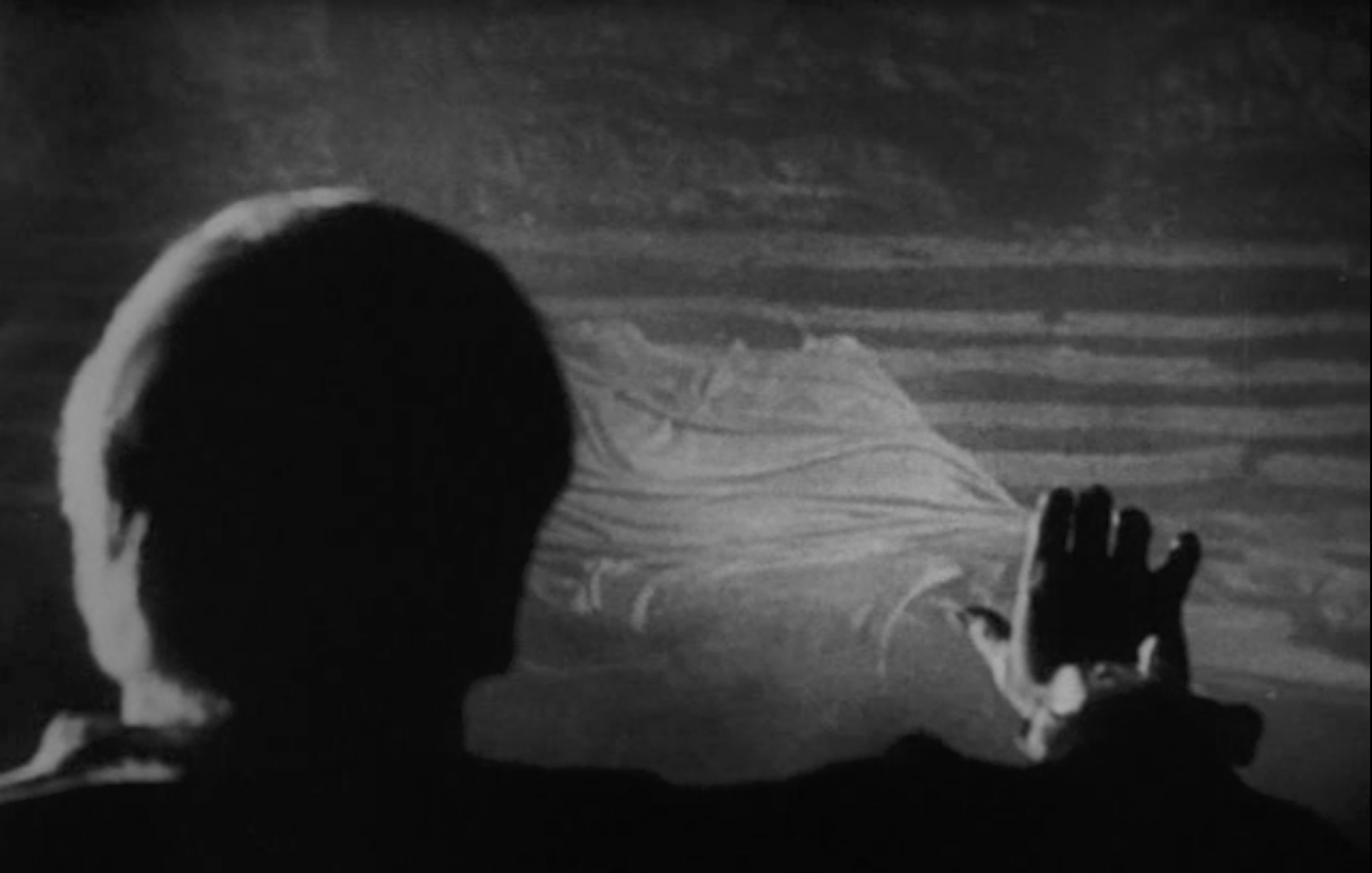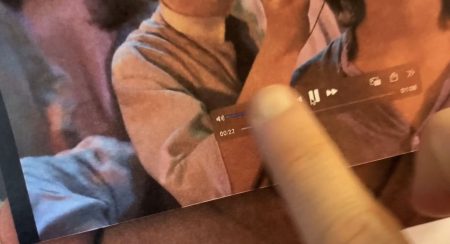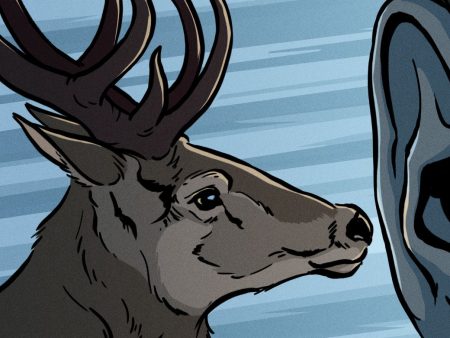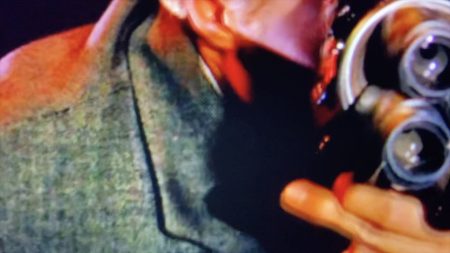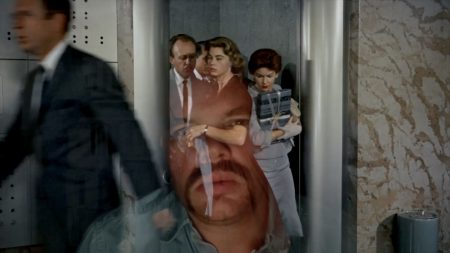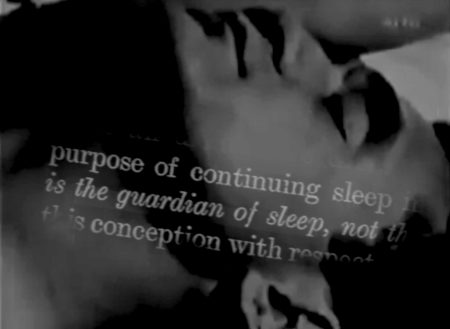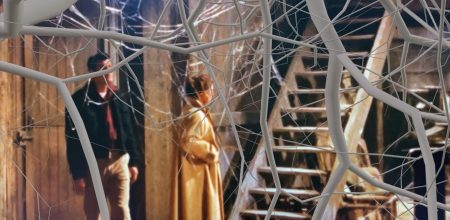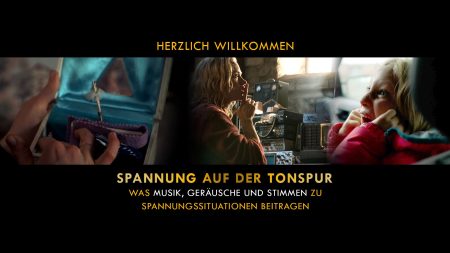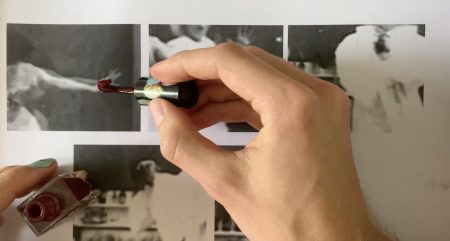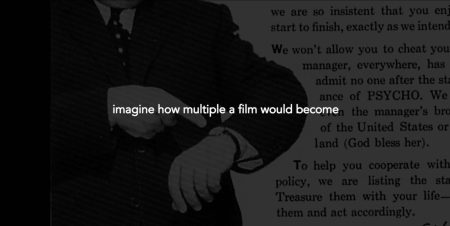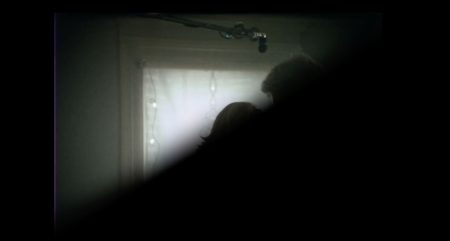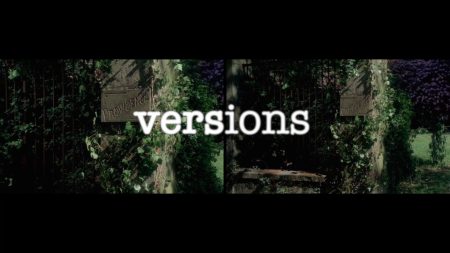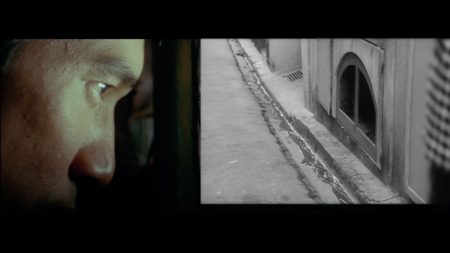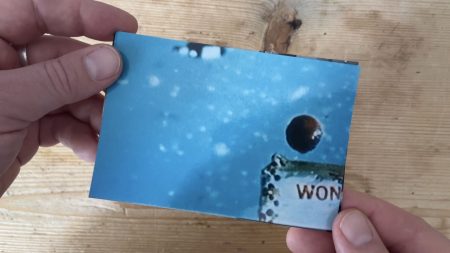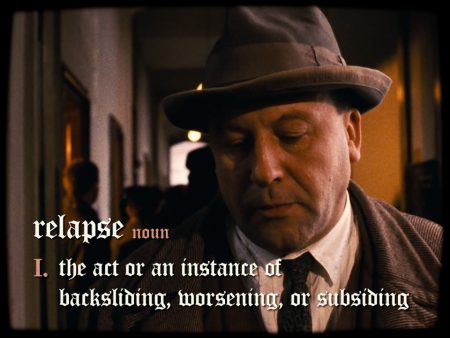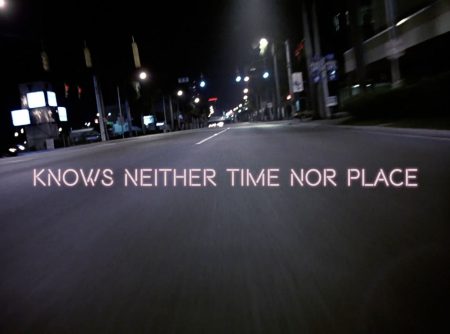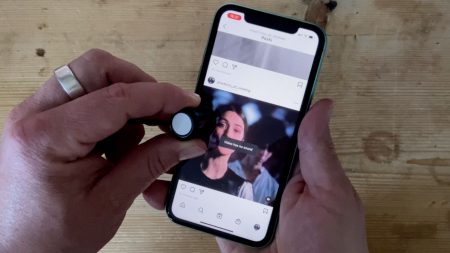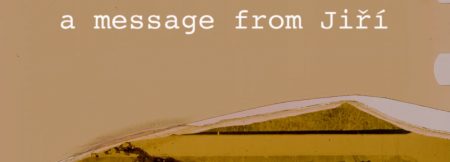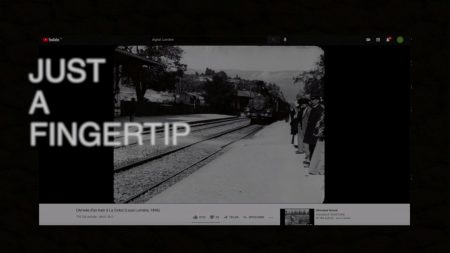This collaborative video essay was made by Chloé Galibert-Laîné, Oswald Iten and Jialu Zhu, to thank Johannes Binotto for leading the SNF-funded research project «Video Essay. Futures of Audiovisual Research and Teaching» at the Lucerne School of Art and Design (Switzerland) from January 2021 to December 2023.… continue
Video Essays
Recent video essays by team members
Johannes Binotto: Desktop Documentary
an accidental research video essay
published in NECSUS (Spring 2023_#Ports)
https://necsus-ejms.org/desktop-documentary
Desk, this word for a ‘table especially adapted for convenience in reading or writing’, as the dictionary explains, is derived from the medieval Latin ‘desca’ and ultimately from the Greek ‘diskos’, which means quoit, platter, or dish.
Johannes Binotto: Practices of Viewing – Description
In his essay of the same name, Raymond Bellour famously called film an „unattainable text“ – a claim made that made sense in 1975 when film critics could refer to films only by writing about them and use screenshots as illustrations.… continue
Johannes Binotto: Practices of Viewing – Color
In Henri-Georges Clouzot’s fragment L’ENFER from 1964, the main character’s jealousy, escalating to the point of psychosis, is reflected in the fact that his surroundings appear tinted in new and disturbing shades.… continue
Chloé Galibert-Laîné: I Would Like to Rage
From role playing games to animated GIFs, from reenacted performances to poetic writing, this video essay asks: what is an authentic expression of anger?
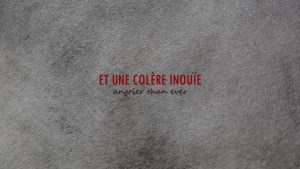

Chloé Galibert-Laîné’s latest video essay «I Would Like to Rage» will have its World Premiere at the Festival des Cinémas Différents et Expérimentaux de Paris in October 2023, and International Premiere at IDFA – International Documentary Film Festival Amsterdam 2023, in the «Signed» selection.… continue
Oswald Iten: Sensuous and Affective
A video essay about «The Potential of Videography for Studying Audio-Visual Relationships» for Zeitschrift für Medienwissenschaft.
Special thanks to Péter Benjámin Lukács (sound designer of ON BODY AND SOUL) for invaluable insight into his process and confirming that the stag’s breathing was indeed of human origin.… continue
Johannes Binotto: Practices of Viewing – Distance
[this video is best experienced with headphones]
Seeing films is also a physical experience, bringing into play my body in new and disturbing ways.
We need to be physically separated from a film in order to watch it.
J. Binotto: Practices of Viewing – Dubbing
As cinephiles we pride ourselves to watch films in original versions only. Dubbed versions, on the other hand, we consider as a massive and thus unacceptable deviation from how a film is intended to be viewed.… continue
Johannes Binotto: Practices of Viewing XI – Sleep
You are not supposed to sleep during a film.
But what if sleep is recognised as not an obstruction but as an essential element of experiencing cinema?
I remember those times I dozed off in the theatre and how I began to intermingle and flow together with those images I saw through my half closed, half open eyes.… continue
Johannes Binotto: Synced
The coupling of optics and acoustics in cinema never was a natural given, but always a construction and as such highly fragile, dependent on technical equipment, and therefore also open for experimentation.… continue
Johannes Binotto: Web
Sirk, the artificial, and watching film history as augmented reality
Playing around with an augmented reality, researching film viewing practices, and my obsession with the question of artificiality in the films of Douglas Sirk – all this coincided in this video essay in for me surprising and disturbing ways.… continue
Oswald Iten: Spannung auf der Tonspur
Within the framework of a series of lectures for the GIBZ (Gewerblich-industrielles Bildungszentrum Zug) in a local cinema, Oswald Iten presented videographic examples of how contemporary narrative feature films create tension on the soundtrack.… continue
Sensing Cinema. A collective video notebook
A collective video notebook on Alice Guy’s LES FREDAINES DE PIERRETTE (1900), the erogeneity of film and our sensibility as cinema spectators.
This notebook is the result of a video essay workshop taught by Johannes Binotto at the conference «Szenen des Sexuellen» (4.-5.… continue
Johannes Binotto: Practices of Viewing VI – Loop
A film has a beginning and an end and what happens in between knows only one direction: forward. That would be a banal commonplace if it were only true. But in fact, film for long was not a linear medium, but a circular one.… continue
Johannes Binotto: Practices of Viewing V – Mask
The fifth entry in the Practices of Viewing series on new media and their old histories.
Cinematic images never come to us directly but through mask that crop their visuals to the right format.… continue
Oswald Iten: Video Note I
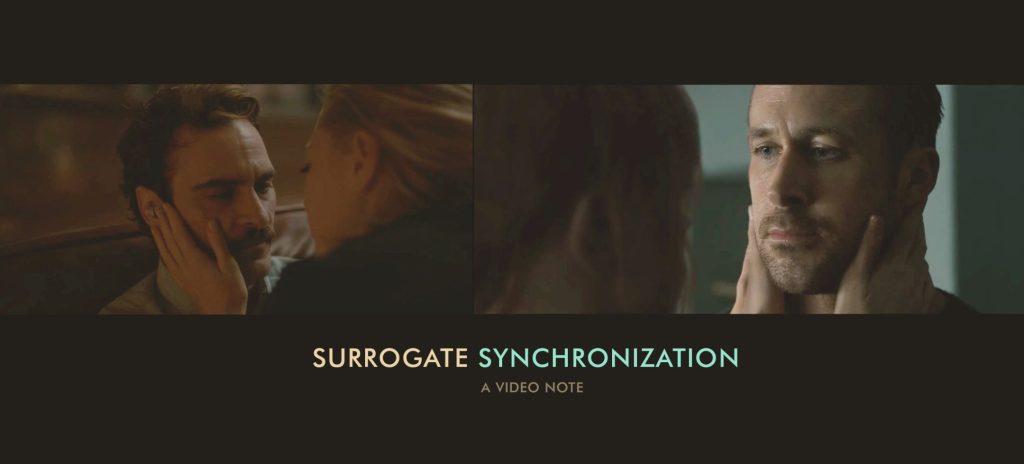
As part of my research, I often swap soundtracks of similar scenes in order to see what this de-familiarization might reveal about the characteristics of the audiovisual relationship. These video notes* are usually just temporary tools of my process.… continue
Johannes Binotto: Versions (on Providence)
WARNING: this video is concerned among other things with death and mortality and may not be suitable for everyone
Alain Resnais film PROVIDENCE from 1977 – the same year I was born – is a film of twos folded into one:
A film about writing and about dying; about memory and decay; an American film made by a French director; a film about the word providence in its double meaning as metaphysical term for complete artistic control and as shibboleth for the universe of H.… continue
Johannes Binotto: music, crystal, memory
In Wong Kar-Wai’s 2046 the use of music from other sources, and from François Truffaut’s VIVEMENT DIMANCHE in particular, becomes an additional layer to its multi-layered images and narrative.
By musical cue one film gets into an intimate conversation with another.… continue
Johannes Binotto: Practices of Viewing IV – Screenshot
In the background of all the films I watch there are these screenshots that keep accumulating on my hard drive. Hundreds, thousands. When I see them I think of all the difficulties we once had with trying to obtain these images hidden within a film.… continue
Oswald Iten: TV Dictionary – Berlin Alexanderplatz
As part of Ariel Avissar’s collaborative video essay project TV DICTIONARY, this bilingual entry seeks to sum up R.W.Fassbinder’s 15 hour adaptation of BERLIN ALEXANDERPLATZ (1980) in one word. Definitions adapted from Merriam-Webster, Collins Dictionary and Duden.… continue
Johannes Binotto: TV Dictionary – Peyton Place
PEYTON PLACE in one word. With help from Merriam-Webster and Gilles Deleuze.
Part of the collection TV DICTIONARY by Ariel Avissar.
… continue
Johannes Binotto: TV Dictionary – Miami Vice
As part of the collaborative video essay project TV DICTIONARY by Ariel Avissar this psychoanalytically inspired video essay reads the 80s TV series MIAMI VICE on the basis of a word that designates its central trope, its aesthetic principle, as well as its fundamental philosophical and psychological concept.… continue
Johannes Binotto: Practices of Viewing III: Muted
«Sound cinema has invented silence»
(Robert Bresson)
On Instagram, Facebook, or Twitter the standard setting for videos is «mute». More than 120 years after its invention silent cinema has become the default mode.… continue
Johannes Binotto: a message from Jiří
Early cinema, the materiality of film, and today’s audio messaging.
The message from scholar and film theorist Jiří Anger on his research on the Czech film pioneer Jan Kříženecký made me see the things he is obsessed with.… continue
Oswald Iten: Silence in THE PASSIONATE FRIENDS
David Lean’s 1949 melodrama THE PASSIONATE FRIENDS has never gained the same popularity as its similarly themed predecessor BRIEF ENCOUNTER (1945). But apart from a stellar performance by Claude Rains it has something that is practically inexistent in the earlier film: silence.… continue
Johannes Binotto: Practices of Viewing II: Pause
Pause is just a click away. The fact that on our devices we can pause a film whenever we want makes us forget how unsettling this actually is. Thinking about how dangerous it once has been when the images come to halt should help us to see this practice as subversive.… continue
Oswald Iten: [SAFE] and THE NEON DEMON in dialogue (Updated)

Despite their obvious differences in story, theme and era, in my mind, Todd Haynes› [SAFE] and Nicolas Winding Refn’s THE NEON DEMON have somehow become tethered to each other. And I still do not know why, exactly.… continue
Johannes Binotto: Practices of Viewing I – F.FWD
Fast forwarding – nothing is as despised and as omnipresent among those in love with cinema. But what if we consider the speeding up of film as a reflexive practice that connects contemporary media consumption with the experimental beginnings of cinema before standardization.… continue
Chloé Galibert-Laîné: A very long exposure time
Inventing a poetic path through images created with Louis Daguerre’s centuries-old photographic device, 16mm film cameras, pixelated video games consoles, early smarphones and contemporary computer interfaces, the work asks: what aspects of reality have these different technologies been designed to document?… continue
Oswald Iten: Beyond the Catchy Tunes
Audiovisual essay for the NECSUS issue Autumn 2020_#Method.
When it comes to Disney music, and The Jungle Book (Wolfgang Reitherman, 1967) in particular, most people think of character-defining songs like ‘The Bare Necessities’.… continue
Jialu Zhu: The Absent Father, Cultural Trauma
Taking “Papa was a Rollin’ Stone” by The Temptations and The Autobiography of Malcolm X as the departure point this video essays traces the theme of the absent black father as rooted in the trauma of colonialization and slavery, perpetuated by the cultural trauma of racism in America. … continue
Johannes Binotto: Key/Frame
In digital video, keyframes are those images which serve as anchoring points for all the other images. By removing them the video becomes unstable.
A digital automaton working against cinema’s obsession.… continue
Jialu Zhu e.a.: Subdue the Earth
A video essay exploring the exploitation of the American west, along the lines of Frederick Jackson Turner’s frontier thesis and western films, from THE MAN FROM LARAMIE to WESTWORLD Season 1.… continue
Chloé Galibert-Laîné: Forensickness
In an attempt to analyse Chris Kennedy’s ‹Watching the Detectives›, a researcher dives into a massive archive of media produced after the Boston attacks. Her online wanderings offer a performative exploration of the history of critical thinking and the ruthless politics of truth production.… continue
Johannes Binotto: Trace
The first image of «Hiroshima mon amour» – a trace, asking for interpretation, resisting interpretation. Feeling for the facets of just this one image is personal, visceral. Never final.… continue
Johannes Binotto: Crossings
There is this magical scene in Ulrike Ottinger’s FREAK ORLANDO which brings into play the questions of otherness and identification, of desire as queer and transgressive, and of film (and media in general) as that which is caught between transparence and opacity.… continue
Johannes Binotto: Follow the Cat
A cat video of a different sort.
Following a cat in Alfred Hitchcock leads to other cats and other films, to radical politics and the trouble with the gaze.… continue
Oswald Iten: The Age Of Emptiness
Video essay based on Martin Scorsese’s 1993 adaptation of Edith Wharton’s novel «The Age Of Innocence» and Bernard Herrmann’s score for TAXI DRIVER (Scorsese, 1976).
«The Age Of Emptiness» takes a look at how we might also read Scorsese’s film in our current situation of «Social Distancing».… continue
